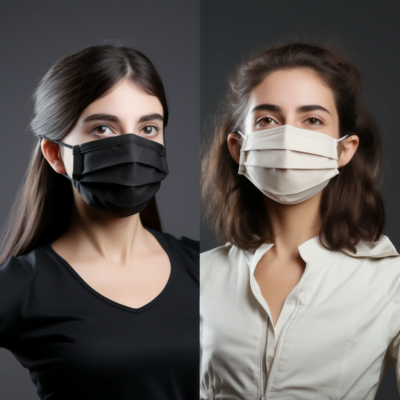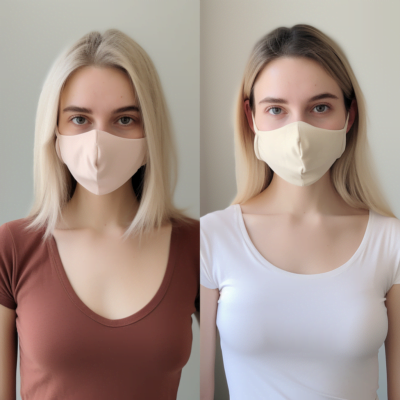Cloth Face Masks vs. Disposable: A Comprehensive Analysis
Face masks have become an integral part of our lives, providing protection against airborne contaminants, including viruses and bacteria. In this article, we will delve into the differences between the two and highlight why reusable cloth masks have emerged as a superior choice for many.
Table of Contents
- Material Composition and Comfort
- Environmental Impact
- Cost Efficiency
- Efficacy and Protection
- Design and Personalization
- Where to Purchase Premium Reusable Masks
1. Material Composition and Comfort
Cloth Masks:
- Typically made of cotton or a blend of comfortable, breathable materials.
- Soft against the skin, reducing the risk of skin irritations over extended use.
- Adjustable straps and designs make for a more customized fit.
Disposable Masks:
- Often made of layers of synthetic materials, which might not be as breathable.
- Tend to have a generic size, which might not fit all face shapes effectively.
- Extended wear might lead to discomfort or skin sensitivity in some individuals.
2. Environmental Impact
Cloth Masks:
- Sustainability: Being reusable, cloth masks significantly reduce waste. With proper care, a single cloth mask can last for months or even years.
- Reduced Carbon Footprint: The long-term use of one cloth mask diminishes the need for frequent production and disposal, cutting down on environmental pollution.
Disposable Masks:
- Waste: Given that they are designed for one-time use, the accumulation of discarded masks contributes significantly to environmental waste.
- Non-Biodegradable: Many disposable masks contain plastics or other non-biodegradable materials, leading to long-term environmental consequences.
3. Cost Efficiency
Cloth Masks:
- Long-Term Savings: Though the initial investment might be slightly higher than a pack of disposable masks, the repeated use results in cost savings in the long run.
Disposable Masks:
- Recurring Costs: The recurring need to purchase packs of disposable masks can add up, especially if you wear masks daily.
4. Efficiency and Protection
Cloth Masks:
- Layering: Modern reusable masks often come with pockets for adding filters, offering an additional layer of protection.
- Wash and Reuse: Regular washing of cloth masks ensures they remain sanitary, preserving their protective qualities.

Disposable Masks:
- Consistent Protection: Generally provide a consistent level of protection during their one-time use.
- Potential for Reduced Efficacy: If worn for extended periods beyond their intended duration, the protective efficacy may decrease.
5. Design and Personalization
Cloth Masks:
- Variety: Available in numerous designs, patterns, and colors, allowing individuals to showcase their personal style.
- Customization: Some manufacturers offer customized designs, adding a personal touch.
Disposable Masks:
- Generic Appearance: Typically come in standard colors (blue, white, or black) and lack the aesthetic appeal of cloth counterparts.
6. Where to Purchase Premium Reusable Masks
If you’re convinced about the superiority of reusable cloth face masks, or simply curious to explore a sustainable, comfortable, and stylish option try our beeactiv reusable face masks on sale.
Final tips
While both cloth and disposable masks serve the primary purpose of protection, reusable cloth masks present a sustainable, cost-effective, and stylish alternative. By opting for cloth masks, you not only ensure personal safety but also contribute positively to the environment.


